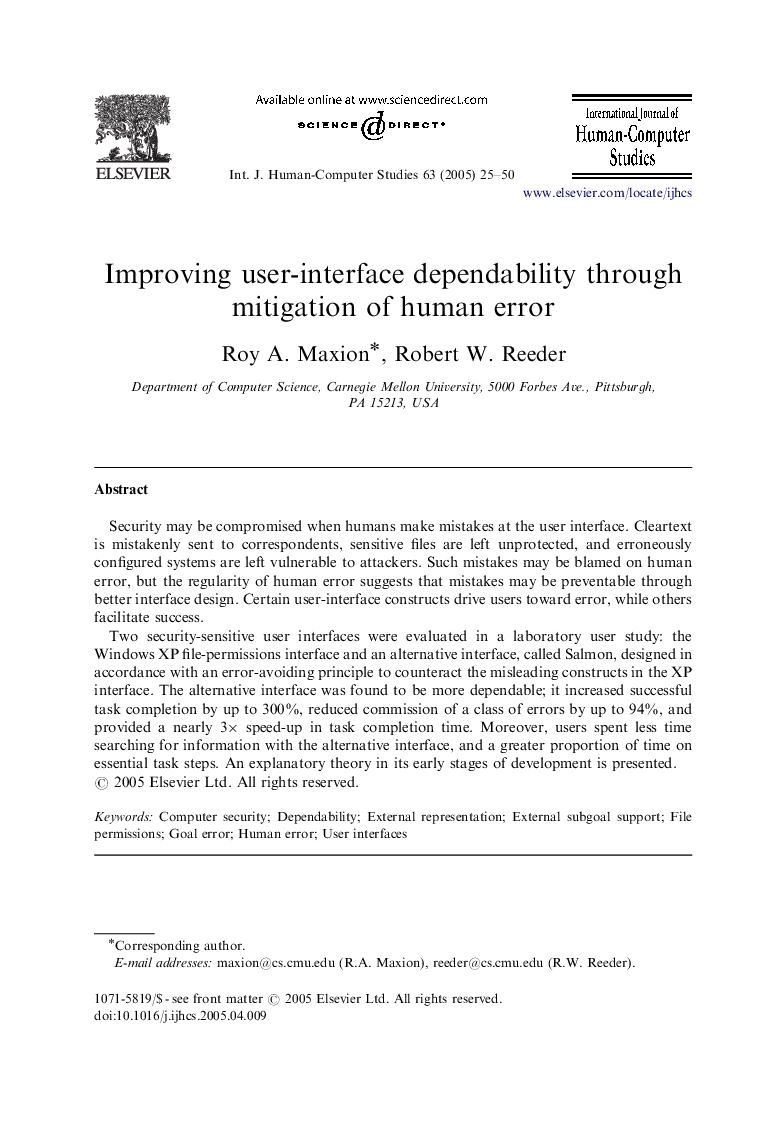| Article ID | Journal | Published Year | Pages | File Type |
|---|---|---|---|---|
| 9652486 | International Journal of Human-Computer Studies | 2005 | 26 Pages |
Abstract
Two security-sensitive user interfaces were evaluated in a laboratory user study: the Windows XP file-permissions interface and an alternative interface, called Salmon, designed in accordance with an error-avoiding principle to counteract the misleading constructs in the XP interface. The alternative interface was found to be more dependable; it increased successful task completion by up to 300%, reduced commission of a class of errors by up to 94%, and provided a nearly 3Ã speed-up in task completion time. Moreover, users spent less time searching for information with the alternative interface, and a greater proportion of time on essential task steps. An explanatory theory in its early stages of development is presented.
Related Topics
Physical Sciences and Engineering
Computer Science
Artificial Intelligence
Authors
Roy A. Maxion, Robert W. Reeder,
